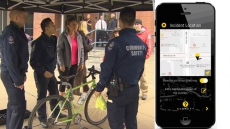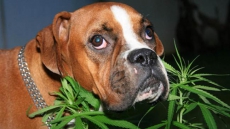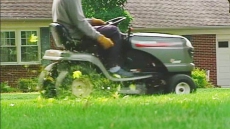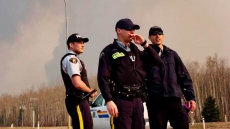VANCOUVER — When Canadian mining executive Jim Cooney coined the term social licence in 1997, he was talking about building support for mines in developing countries, not resource projects at home.
But nearly two decades later, the phrase is regularly invoked by industry, politicians and environmental groups in the Canadian pipeline debate. Some observers say it's a sign of progress, but others say the ill-defined term is undermining legal and regulatory processes.
"I'm sometimes praised and sometimes blamed," said Cooney, now an adjunct mining professor at the University of British Columbia, with a laugh. "I wish now I had trademarked the term. I didn't think it was that significant. I thought it was just a way of sort of explaining a reality on the ground."
Cooney first used the phrase at a mining conference in Washington. He had noticed the power of local communities to derail projects was growing, in part because the Internet was enabling them to form alliances with non-governmental organizations and academics.
He said he realized companies faced a "two-track approval process," in which they had to obtain both a government permit and what he called a social licence.
"Local communities have concerns, which from their point of view, are not and cannot be adequately addressed by higher levels of government," he said. "Companies, to satisfy local concerns, need to go beyond regulatory compliance sometimes."
He acknowledged that social licence is difficult to define and often misused. He said his definition includes three characteristics: a precautionary approach to environmental impacts, a specific contractual agreement outlining benefits to the community and ongoing communication.
Without a social licence, energy companies can find themselves mired in legal challenges and unable to get shovels in the ground, Cooney said.

But Dwight Newman, a senior fellow with the MacDonald-Laurier Institute, said the term has been expanded to a more ill-defined idea, which activists are abusing to undermine major projects.
"Some of those who are opposed to a particular project, or to pipeline projects in general, can end up raising the idea of social licence to suggest that there are additional requirements beyond those that are provided for within the law," he said.
Social licence is not a legal term and the regulatory process for resource projects already allows for the participation of affected municipalities and First Nations, as well as rigorous environmental reviews, he said.
Indigenous rights are protected in the Constitution and aboriginal communities often have standing in the courts to pursue their rights claims, he added.
"I would say it diminishes those rights to call them social licence, because they are actually part of the legal licence in a sense."
David Bursey, a regulatory lawyer and partner with Bennett Jones, said social licence appears to be defined differently on either side of the debate. Companies are usually referring to social responsibility and building community goodwill to allow a project to proceed, he said.
"(Companies) don't actually mean permission," he said. "But the term licence, for people who might be opposed to a project, like to think of it as actually meaning consent."
Law professor Chris Tollefson of the University of Victoria said social licence is won through a fair process, regardless of whether the participants support the outcome.

"I think where you have a process that has allowed citizens to participate in a meaningful way, you engender trust," said Tollefson. "At that point, whatever decision comes out, there's a much better chance that it will have social licence."
Tollefson represented B.C. Nature and Nature Canada in the National Energy Board's hearings on the Trans Mountain pipeline expansion, and he said the project will likely never have social licence because of the board's process. The board recommended on Thursday that Ottawa approve the expansion.
The board's mandate under the previous Conservative government set limits on who could participate and didn't require it to examine upstream or downstream greenhouse gas emissions. The board also excluded oral cross-examination in favour of written questions and answers.
Board spokeswoman Tara O'Donovan said the absence of oral cross-examination doesn't mean the evidence of a proponent isn't tested. It's challenged by the written process, the energy board's expert staff, and the submission of information and final arguments that reach different conclusions, she said.
Complaints about the process prompted Justin Trudeau to promise a "new open process" for all pipelines when he was an opposition leader. In January, Trudeau's government announced deeper indigenous consultation and an assessment of upstream greenhouse gas emissions.
"The government has made it a priority to restore the public's trust in the way major resource projects are reviewed," Natural Resources Canada said in a statement.





